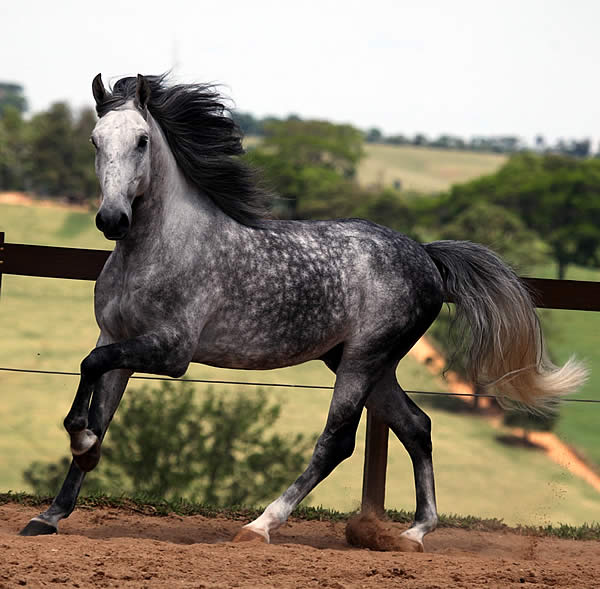The Andalusian horse, known for its elegance and grace, is a beloved breed among horse enthusiasts. However, like any other breed, the Andalusian horse is susceptible to certain health issues. Understanding these common health problems is crucial for ensuring the well-being of these majestic creatures.
In this article, we will explore the common health issues that affect Andalusian horses and provide insights into how to manage and prevent them effectively. Our goal is to equip horse owners with the knowledge they need to keep their Andalusian horses healthy and thriving.

Understanding the Andalusian Horse
Before delving into specific health issues, it’s important to have a brief overview of the Andalusian horse. Originating from the Iberian Peninsula, this breed is admired for its strength, intelligence, and agility. They have a rich history and are often associated with Spanish traditions and equestrian events.
Physical Characteristics
Andalusian horses are known for their distinctive appearance, including a muscular build, long flowing manes, and a striking presence. Their beauty and elegance make them a popular choice for horse shows and competitions.
Temperament and Behavior
These horses are not only physically impressive but also have a gentle and cooperative nature. They are known for their intelligence and willingness to learn, making them suitable for a variety of equestrian activities.
Common Health Issues in Andalusian Horses
Hoof Problems
One of the most prevalent health issues in Andalusian horses is hoof-related problems. Due to their active nature and often being used for performance, they are prone to conditions like laminitis and thrush. Regular hoof care and maintenance are essential to prevent these issues.
Digestive Disorders
Digestive problems such as colic can be a concern for Andalusian horses. Ensuring a balanced diet and proper feeding routine is crucial. For more on feeding practices, you can visit this feeding guide.
Respiratory Conditions
Respiratory issues like heaves or chronic obstructive pulmonary disease (COPD) are also common in Andalusian horses. Providing a dust-free environment and regular veterinary check-ups can help manage these conditions.
Musculoskeletal Disorders
Due to their active lifestyle, Andalusian horses may experience musculoskeletal problems. Conditions like arthritis and tendon injuries require proper care and attention.
Skin Conditions
Skin allergies and conditions like rain rot can affect Andalusian horses. Regular grooming and hygiene practices are essential to prevent these issues. You can learn more about grooming tips in this grooming guide.
Prevention and Management
Regular Veterinary Check-Ups
Routine veterinary check-ups are vital for early detection and management of health problems. A qualified veterinarian can provide valuable insights into maintaining the health of your Andalusian horse.
Proper Nutrition
A balanced diet tailored to the needs of Andalusian horses is essential for their overall well-being. Consult with an equine nutritionist to formulate a suitable feeding plan.
Exercise and Conditioning
Regular exercise and conditioning are crucial for maintaining the physical health of Andalusian horses. Engaging them in activities that promote muscle strength and flexibility can prevent musculoskeletal issues.
Environmental Management
Creating a clean and safe environment for your Andalusian horse is essential. Reducing exposure to dust, allergens, and environmental hazards can prevent respiratory and skin issues.
Conclusion
Andalusian horses are remarkable creatures that bring joy and beauty to the lives of those who care for them. By understanding and addressing their common health issues, owners can ensure these majestic animals live long, healthy lives.
For more information on the heritage and spirit of the Andalusian horse, visit this external link.

Frequently Asked Questions
What are some common hoof problems in Andalusian horses?
Common hoof problems include laminitis and thrush, which require regular hoof care and maintenance.
How can I prevent respiratory issues in my Andalusian horse?
Providing a dust-free environment and regular veterinary check-ups can help prevent respiratory conditions like heaves.
What dietary considerations are important for Andalusian horses?
Ensuring a balanced diet with the right nutrients is crucial. Consulting with an equine nutritionist can help formulate a suitable feeding plan.
This article contains affiliate links. We may earn a commission at no extra cost to you.








